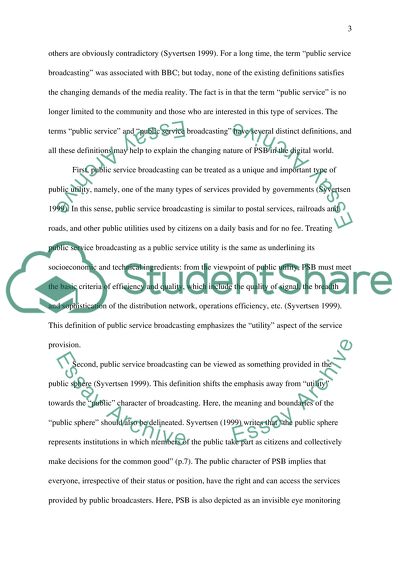Cite this document
(“Public Service Broadcasting Essay Example | Topics and Well Written Essays - 2000 words”, n.d.)
Public Service Broadcasting Essay Example | Topics and Well Written Essays - 2000 words. Retrieved from https://studentshare.org/visual-arts-film-studies/1444361-public-service-broadcasting
Public Service Broadcasting Essay Example | Topics and Well Written Essays - 2000 words. Retrieved from https://studentshare.org/visual-arts-film-studies/1444361-public-service-broadcasting
(Public Service Broadcasting Essay Example | Topics and Well Written Essays - 2000 Words)
Public Service Broadcasting Essay Example | Topics and Well Written Essays - 2000 Words. https://studentshare.org/visual-arts-film-studies/1444361-public-service-broadcasting.
Public Service Broadcasting Essay Example | Topics and Well Written Essays - 2000 Words. https://studentshare.org/visual-arts-film-studies/1444361-public-service-broadcasting.
“Public Service Broadcasting Essay Example | Topics and Well Written Essays - 2000 Words”, n.d. https://studentshare.org/visual-arts-film-studies/1444361-public-service-broadcasting.


